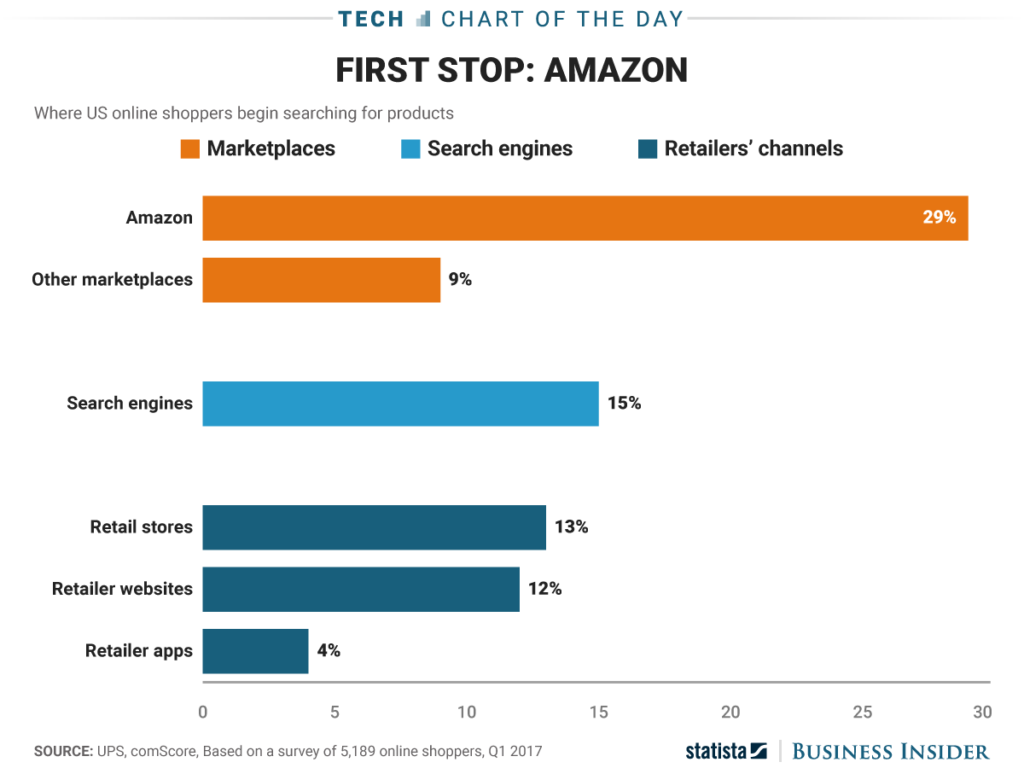He writes:
If antitrust is due for a revival, just what should the antitrust law be doing? What are its most obvious targets? Compiled here (in alphabetical order) , and based on discussions with other antitrust experts, is a collection of the law’s most wanted — the firms or industries that are ripe for investigation.
Amazon
Investigation questions: Does Amazon have buying power in the employee markets in some areas of the country? Does it have market power? Is it improperly favoring its own products over marketplace competitors?
AT&T/WarnerMedia
Investigation question: In light of this, was the trial court’s approval of the AT&T and Time Warner merger clearly in error?
Big Agriculture
Over the last five years, the agricultural seed, fertilizer, and chemical industry has consolidated into four global giants: BASF, Bayer, DowDuPont, and ChemChina. According to the U.S. Department of Agriculture, seed prices have tripled since the 1990s, and since the mergers, fertilizer prices are up as well.
Investigation question: Were these mergers wrongly approved in the United States and Europe?
Big Pharma
The pharmaceutical industry has a long track record of anticompetitive and extortionary practices, including the abuse of patent rights for anticompetitive purposes and various forms of price gouging.
Investigation and legislative questions: Are there abuses of the patent system that are still ripe for investigation? Can something be done about pharmaceutical price gouging on drugs that are out of patent or, perhaps more broadly, the extortionate increases in the prices of prescription drugs?
Facebook
Having acquired competitors Instagram and WhatsApp in the 2010s in mergers that were arguably illegal, it has repeatedly increased its advertising load, incurred repeat violations of privacy laws, and failed to secure its networks against foreign manipulation while also dealing suspicious blows to competitor Snapchat. No obvious inefficiencies attend its dissolution.
Investigation questions: Should the Instagram and WhatsApp mergers be retroactively dissolved (effectively breaking up the company)? Did Facebook use its market power and control of Instagram and Instagram Stories to illegally diminish Snapchat from 2016–2018?
Google
Investigation question: Has Google anticompetitively excluded its rivals?
Ticketmaster/Live Nation
Investigation questions: Has Live Nation used its power as a promoter to protect Ticketmaster’s monopoly on sales? Was Songkick the victim of an illegal exclusion campaign? Should the Ticketmaster/Live Nation union be dissolved?
T-Mobile/Sprint
Investigation question: Would the merger between T-Mobile and Sprint likely yield higher prices and easier coordination among the three remaining firms?
U.S. Airline Industry
The U.S. airline industry is the exemplar of failed merger review.
Investigation and regulatory questions: Should one or more of the major mergers be reconsidered in light of new evidence? Alternatively, given the return to previous levels of concentration, should firmer regulation be imposed, including baggage and change-fee caps, minimum seat sizes, and other measures?
U.S. Hospitals
Legislative question: Should Congress or the states impose higher levels of scrutiny for health care and hospital mergers?
Investigation question: In light of this, was the trial court’s approval of the AT&T and Time Warner merger clearly in error?

